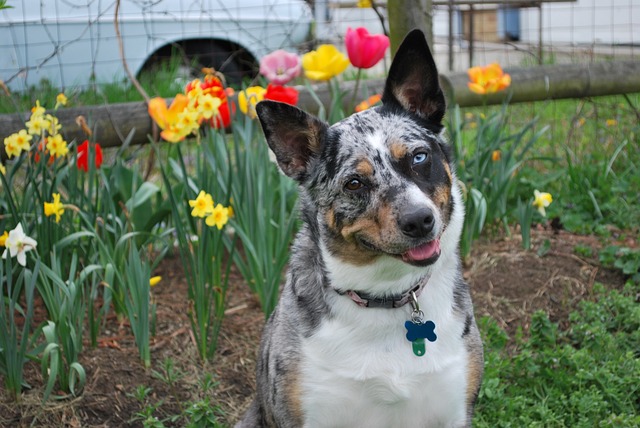


The Koolie is a highly intelligent and energetic herding breed known for its agility, speed, and strong work ethic. Originally bred in Australia to work on farms, Koolies are loyal, driven, and alert dogs that thrive when given tasks to complete. Their athletic build, combined with their enthusiastic temperament, makes them exceptional working dogs, particularly in herding livestock. Koolies are also becoming increasingly popular as family pets, especially in active households where their exercise needs and intelligence can be fully utilized. They are known for their striking coat, which comes in various colors and patterns, adding to their unique appearance.
The Koolie, also known as the Australian Koolie or the Australian Collie, is an Australian working dog with roots in the country’s pastoral history. The breed was developed in the 19th century, with the goal of creating an effective herding dog that could manage livestock in the rugged Australian landscape. Koolies were used on large farms to herd sheep, cattle, and other animals, and they are known for their boundless energy and exceptional stamina. While they share some similarities with other herding breeds like the Australian Shepherd and Border Collie, the Koolie is its own distinct breed with a history deeply tied to the Australian outback. Though the breed was historically undervalued, it has seen a rise in recognition in recent years, particularly for its intelligence and agility in dog sports.
The Koolie is a medium-sized dog, typically standing 16 to 20 inches tall at the shoulder and weighing between 30 to 50 pounds. They have a compact, muscular frame, built for agility and endurance. Koolies are known for their striking coat, which is medium-length and dense, offering protection from both the sun and rain. Their coat can come in a variety of colors and patterns, including merle, black, blue, red, and even a mix of these. Their eyes are often a standout feature, as they can be blue, brown, or even two different colors. Koolies have a keen, intelligent expression, and their ears are typically semi-erect, contributing to their alert demeanor. Their tail is typically long and straight or slightly curved. Overall, the Koolie’s physical traits reflect its active, hardworking nature.
The Koolie is known for its high energy and intelligent, independent nature. They are highly trainable but can also be a bit headstrong, as they have been bred to think independently while working in the field. Koolies are very loyal to their families and tend to form strong bonds with their human companions. They are generally good with children and other pets, especially when socialized from an early age. However, because they are working dogs, they have a strong herding instinct and may try to herd smaller animals or even children if not properly trained. They are also naturally reserved around strangers but are not typically aggressive. Koolies thrive in environments where they have a job to do and enjoy having a purpose, making them excellent companions for active individuals or families.
The Koolie is an extremely active breed that requires a significant amount of exercise to stay healthy and happy. Due to their herding background, they have high energy levels and need regular, vigorous physical activity. Daily walks, runs, and playtime are essential for keeping them physically stimulated. Agility training, fetch, and other interactive activities are great ways to burn off their energy and keep them engaged. Koolies are not well-suited to sedentary lifestyles, and without enough physical exercise, they can become bored and exhibit undesirable behaviors. Because they are intelligent dogs, mental stimulation is just as important as physical exercise. Puzzle toys, obedience training, and tasks that challenge their problem-solving abilities can help meet their mental needs.
Koolies are highly intelligent and eager to please, which makes them relatively easy to train. However, they can be independent and strong-willed, so consistent, positive reinforcement methods are necessary. They respond well to rewards like treats, praise, and play, and they tend to learn quickly when motivated. Early socialization is important to help them become well-rounded dogs and to prevent them from becoming overly protective or reserved around strangers. Socialization with other animals is also crucial, as Koolies have a natural herding instinct that can lead them to try and control smaller animals or children. With proper training and socialization, Koolies make excellent family companions and can excel in dog sports such as obedience, agility, and herding trials.
The Koolie is generally a healthy breed, but, like all dogs, they are prone to certain health issues. Some common health concerns in Koolies include hip dysplasia, progressive retinal atrophy (PRA), and deafness, particularly in merle-colored dogs. Regular veterinary check-ups, a balanced diet, and exercise are important for maintaining their overall health. Koolies have a medium-length coat that requires regular grooming to keep it in good condition. Brushing a few times a week will help remove loose hair and prevent mats, especially during shedding seasons. Koolies do not have a strong odor and are relatively easy to maintain in terms of cleanliness. Routine ear cleaning and dental care are also important aspects of their grooming routine to prevent infections and maintain oral health.
The average lifespan of a Koolie is between 12 to 16 years. With proper care, including regular exercise, a healthy diet, and routine veterinary visits, they can live long, healthy lives. As with any dog, regular monitoring for age-related conditions such as arthritis, vision problems, or hearing loss is important as they grow older. Ensuring that the Koolie stays mentally and physically active throughout their life will contribute to their longevity and well-being.
© copyright Dog Compendium 2024 - 2026